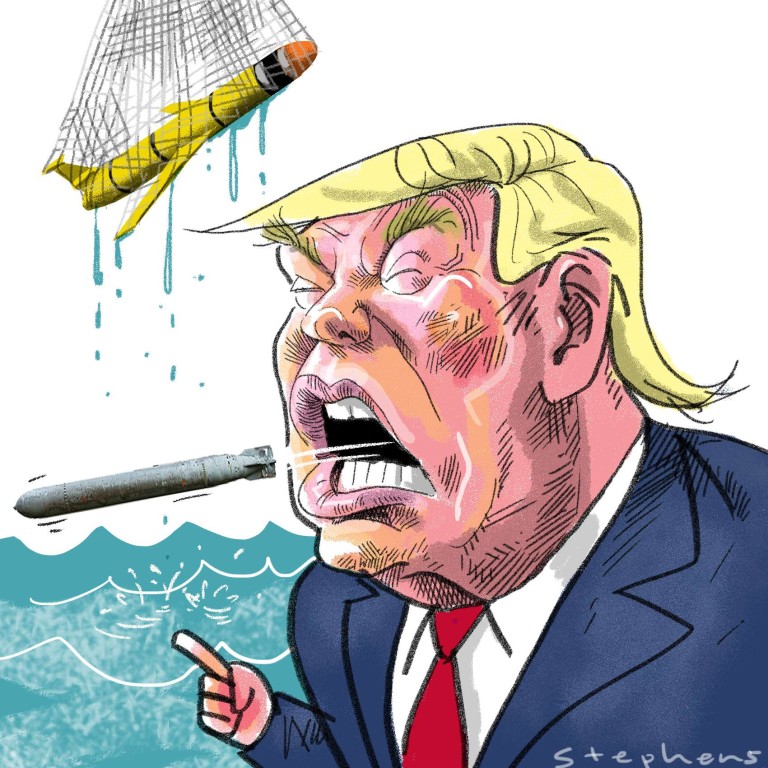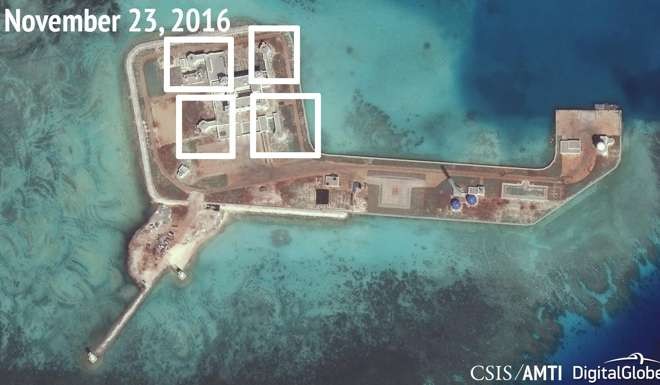
Underwater drone spat shows why China-US relations are tense – and can only get worse under Trump
Tom Plate says the latest Sino-US tensions show both sides need to make a lot more adjustments to get along. For China, it means accepting a US leader who will certainly offend its sensibilities

Satellite images ‘show Beijing has built weapons on all its artificial islands in South China Sea’

As far as anyone can tell, Trump’s beliefs are that the world needs to remain America’s oyster
Rather than throw curses at historical probability – whether via bombast or bombs – a responsible and visionary US foreign policy would focus more on the reality of the 21st century and China’s rising role in it.
One trick is to comprehend this giant on its own terms, rather than on ours, while still honouring worthy treaties with Japan and Korea (Beijing must try to swallow this). That won’t be an easy balance to maintain, but it will be easier and more prudent than if the US Pacific Command tries to regard the South China Sea with the same proprietary air as the US Fourth Fleet over the Caribbean.
Watch: China warns Trump on Taiwan comments
How a snub of the one-China policy almost led Beijing and US into war in the 1990s
It would certainly help to keep the bilateral blood pressure on an even keel were President-elect Donald Trump to control his tweets and be more careful about accepting phone calls from relative strangers bearing ego-stroking gifts. Again, Mr Obama: “And so if you are going to upend this understanding [about Taiwan], you have to have thought through what the consequences are.” The Chinese, he said, would not treat any departure in US policy on Taiwan the way they would treat other issues – not even the South China Sea, “where we’ve had a lot of tensions”.

Based on any sympathetic understanding of Chinese diplomacy since 1949, this won’t do. Pick up a copy of Ten Episodes in China’s Diplomacy by Qian Qichen ( 錢其琛 ), who from 1988 to 1998 was China’s foreign minister, and you will see the problem. The Chinese find “deal diplomacy” extremely tacky. In Qian’s 2005 memoir, the figure of James A. Baker, the US secretary of state under president George H. W. Bush, emerges not as a skilled statesman but as a vulgar discount-car dealer: “Baker handled foreign affairs as if he were doing business. At the negotiating table, he liked to say, ‘Let’s make a deal’.” The irritation of Qian, who was respected among world diplomats, notwithstanding his hawkishness on Taiwan, is palpable throughout the book. America’s incoming “Dealer in Chief” will grate against Chinese sensibilities; Trump is Baker without the finesse.
China’s leaders need to regroup and review. For, whatever his faults (indecisiveness, fumbled Asian pivot, whatever) with Beijing, Obama was always properly cautious. Let the record show that, on his watch, no war between China and America came close to surfacing.
Trump is no Obama; he tweeted: “We should tell China that we don’t want the drone they stole back – let them keep it!”
Columnist Tom Plate’s latest book – Peace Columnist: China and American Journalist Tom Plate – is to be published next year

